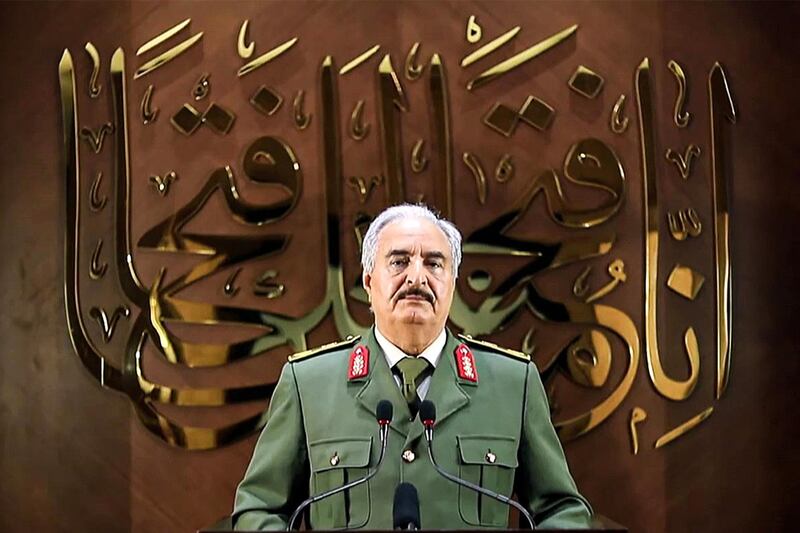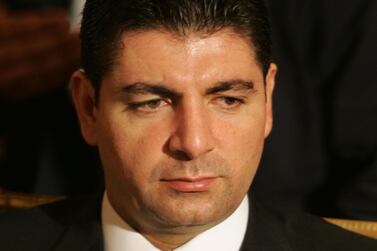Forces loyal to Libya’s eastern commander Field Marshal Khalifa Haftar said oil ports closed since January could reopen, although it was not clear if crude production would be allowed.
The ports can dispose of fuel and gas stockpiles to fix power cuts in eastern Libya, Naji Al Maghrabi, head of an oilfield guard linked to Field Marshal Haftar’s Libyan National Army, said late on Tuesday.
The state-run National Oil Corporation was not immediately available for comment and Mr Al Maghrabi’s statement did not mention restarting production of oilfields.
Field Marshal Haftar met representatives from the NOC and Arabian Gulf Oil Company to try to “ease the suffering of citizens in all walks of life, safeguard the infrastructure at production and export sites and maintain the existing oil facilities", Mr Al Maghrabi said.
The NOC last week warned of worsening power cuts in Libya’s east, where a seven-month blockade of oil and gas facilities has deprived electricity stations of fuel and caused cuts that can last as long as 12 hours.
Libya, which holds Africa’s largest crude reserves, produced about 1.2 million barrels a day last year.
That figure dropped to about 90,000 daily barrels after supporters of Field Marshal Haftar, who has been fighting the government in Tripoli and the militias it employs to defend it, halted operations at fields and ports at the start of the year.
The Government of National Accord has the support of Turkey, which provided troops, trainers, Syrian mercenaries and weapons, despite international condemnation.
Field Marshal Haftar's forces last month repeated that the oilfield closures would end only when there was agreement to distribute revenue in a fairer way.
The blockade has cost the North African nation at least $8 billion (Dh29.38bn).
Libya split into rival factions and governments after the 2011 uprising that overthrew Muammar Qaddafi.






